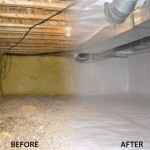How To Get Rid Of Black Spiders In Basement Windows
Basement windows are a common entry point for various pests, including black spiders. These arachnids are often drawn to the damp, dark environments basements provide, coupled with the abundance of insects that serve as their food source. Effective spider management requires a multi-faceted approach, encompassing preventative measures, habitat control, and direct removal techniques.
Understanding Black Spiders and Their Attractants
Before initiating any control measures, it's crucial to identify the type of black spider inhabiting the basement window area. While many spiders are harmless, some, like the black widow, pose a health risk due to their venomous bite. Common black spiders found in basements often include cellar spiders, black house spiders, and occasionally, the aforementioned black widow. Identifying the specific species aids in tailoring the control strategy.
Spiders are attracted to environments that offer shelter and a plentiful food supply. Basement windows often provide both. Cracks in the window frame, gaps around the seals, and accumulated debris create ideal hiding spots. Furthermore, light from the basement window can attract insects, which in turn attract spiders. Dampness and humidity, common in basements, also contribute to an environment conducive to spider habitation.
The presence of webs is a clear indication of spider activity. These webs serve as traps for insects and provide a safe haven for the spider. Regularly observing the basement windows for webs and other signs of spider activity allows for early detection and intervention.
Implementing Preventative Measures
Prevention is the most effective strategy for long-term spider control. By addressing the factors that attract spiders to the basement window area, one can significantly reduce the likelihood of infestation.
Sealing cracks and gaps in the window frame and around the window seals is paramount. Caulk or weather stripping can be used to effectively close these entry points. Paying close attention to even small openings is important, as spiders can squeeze through surprisingly narrow spaces. Regularly inspecting the windows for any new cracks or damage is also recommended.
Reducing humidity in the basement can also deter spiders. Dehumidifiers can be used to lower the moisture level, making the environment less appealing. Ensuring proper ventilation in the basement is also crucial. Opening windows (screened, of course) periodically can help to circulate air and reduce humidity. Addressing any water leaks or drainage issues in the basement is also essential to eliminate standing water that can contribute to humidity.
Controlling the insect population around the basement windows is equally important. Since spiders prey on insects, reducing the insect population will naturally reduce the spider population. This can be achieved by using insect-repelling lights outside the windows, regularly sweeping up dead insects, and addressing any underlying issues that may be attracting insects to the area, such as food spills or decaying organic matter.
Another preventative measure involves maintaining cleanliness. Regularly cleaning the basement windows and surrounding areas helps to remove spider webs, egg sacs, and potential hiding places. This includes sweeping up debris, removing clutter, and wiping down surfaces. A clean environment is less attractive to spiders and makes it easier to spot any new infestations.
Direct Removal and Control Techniques
In addition to preventative measures, direct removal and control techniques may be necessary to eliminate existing spider populations in the basement window area. Several options are available, ranging from non-toxic methods to chemical treatments.
One of the simplest and most effective methods is manual removal. This involves physically removing spiders and their webs using a vacuum cleaner or a broom. When using a vacuum cleaner, ensure to dispose of the vacuum bag or empty the canister immediately to prevent the spiders from escaping. When using a broom, be cautious not to crush the spiders, as some species may release a defensive odor. This method is particularly effective for removing individual spiders and their webs.
Various non-toxic spider repellents are available. These repellents typically contain natural ingredients, such as essential oils, that spiders find unpleasant. Peppermint oil, cedarwood oil, and eucalyptus oil are commonly used as spider repellents. Diluting these oils with water and spraying them around the basement windows can help to deter spiders. Regularly reapplying the repellent is necessary to maintain its effectiveness. Another non-toxic option is diatomaceous earth, a fine powder that dehydrates insects and spiders. Sprinkling diatomaceous earth around the basement windows can help to control spider populations. However, it's important to use food-grade diatomaceous earth, as other types can be harmful to humans and pets.
If non-toxic methods are insufficient, chemical treatments may be considered. However, it's important to use these treatments judiciously and to follow the manufacturer's instructions carefully. Insecticides labeled for spider control can be applied around the basement windows to kill spiders on contact. These insecticides typically come in spray form and should be applied to areas where spiders are known to hide, such as cracks, crevices, and corners. It is crucial to ventilate the basement thoroughly after applying chemical treatments and to keep children and pets away from the treated areas until the insecticide has dried completely.
Professional pest control services offer a comprehensive approach to spider control. These services typically involve a thorough inspection of the basement and surrounding areas, followed by a customized treatment plan. Pest control professionals have access to a wider range of insecticides and application techniques, and they can provide expert advice on preventing future infestations. Hiring a professional pest control service may be the most effective option for severe spider infestations or for individuals who are uncomfortable handling insecticides themselves.
Long-Term Monitoring and Maintenance
Even after implementing control measures, it's essential to monitor the basement windows regularly for signs of spider activity. This includes checking for new webs, spider droppings, and live spiders. Early detection of any re-infestation allows for prompt intervention and prevents the problem from escalating.
Maintaining the preventative measures outlined earlier is crucial for long-term spider control. This includes regularly sealing cracks and gaps, reducing humidity, controlling the insect population, and maintaining cleanliness. Periodic inspections of the basement windows and surrounding areas can help to identify and address any potential issues before they attract spiders.
Adapting the control strategy as needed is also important. Spider populations can fluctuate depending on the season and other environmental factors. If spider activity increases despite the implemented control measures, it may be necessary to adjust the strategy. This could involve using different types of repellents, applying insecticides more frequently, or seeking professional pest control assistance.

Get Rid Of Basement Spiders Green Giant Home Commercial

How To Get Rid Of Black Widow Spiders Diy Pest Control

How To Get Rid Of Spiders In Your Basement Family Handyman

How To Get Rid Of Spiders The Home

How To Get Rid Of A Spider Infestation Once And For All Plunkett S Pest Control

How Do I Get Rid Of Spiders In My House Brody Brothers

How To Get Rid Of Black Widow Spiders Safe Diy Pest Removal

How To Get Rid Of Spiders In Your Basement Family Handyman

How To Get Rid Of Spiders Expert Advice Repel

How To Get Rid Of Cellar Spiders
Related Posts







